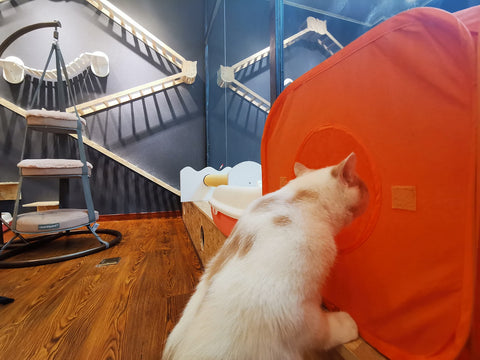Firstly, it's important to understand that pets have sensitive hearing. Cats and dogs can hear a broader range of frequencies than humans, and can hear sounds at much lower volumes. Loud noises that humans can tolerate can be incredibly distressing for pets. Exposure to loud noises over an extended period can lead to hearing damage, which can cause long-term health problems in pets.

Moreover, noise levels can have a significant impact on pet behavior. Pets that are exposed to high levels of noise can experience stress and anxiety, which can lead to a range of unwanted behaviors, including excessive barking, destructive chewing, aggression, and hiding. In some cases, this behavior can be so severe that it negatively impacts the pet's quality of life and the owner's ability to care for them.
Noise-related stress can also have a detrimental effect on pets' physical health. Prolonged exposure to loud noise can cause an increase in blood pressure, heart rate, and respiratory rate, which can lead to health problems such as hypertension, heart disease, and respiratory issues.

So, what can pet owners do to reduce noise-related stress in their pets? Here are some tips:
Reduce noise levels in the home - Try to keep noise levels in the home at a minimum. Avoid playing loud music, using noisy appliances, or running the vacuum cleaner when your pet is around. If you have a noisy home, consider using sound-absorbing materials such as carpets, rugs, and curtains.
Provide a quiet retreat - Create a safe, quiet space in your home where your pet can go to escape noise. This could be a room with a comfortable bed, toys, and water.

Use white noise - Consider using white noise machines or apps to mask external noise. White noise can help to reduce stress in pets and promote relaxation.
Use ear protection - For pets that are particularly sensitive to noise, consider using ear protection. There are ear muffs and ear plugs designed specifically for pets that can help to reduce noise-related stress.

Seek professional help - If your pet's noise-related stress is severe, consider seeking professional help. Your vet may be able to recommend medications or therapies that can help to reduce your pet's stress levels.
In conclusion, noise levels can have a significant impact on pet health and behavior. Pet owners should take steps to reduce noise-related stress in their pets to promote a healthy and happy lifestyle. By creating a calm, quiet environment and providing a safe retreat, pets can thrive and enjoy a long and healthy life.
